Reviews
As the Tide Came Flowing In
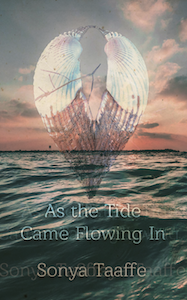
Pairs of lovers in Sonya Taaffe stories are marked by difference that makes a separation: one is a mortal, another a ghost, a dybbuk, a metamorphosis. The story is in how and when they reach for each other and how and when they turn away, and where in the dance Sonya stops the music.
—Francesca Forrest, Asakiyume mita
All this ambiguity, all the different interpretations of reality swirling around her. And in the meantime the world moves on, from the age of whaling to World War I. The asylum fills up with PTSD patients, a new era of trauma. A new set of people who have to reconcile different realities, and aren’t given an acceptable way to do so. Moonlight meets gaslight, flesh on one side of vision and sea-wrack on the other. We never do find out which to believe—and Lizzie may not find out either.
—Anne M. Pillsworth and Ruthanna Emrys, Tor.com
Forget the Sleepless Shores
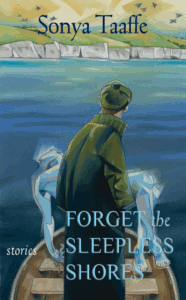
The magical realism of poet and fantasist Taaffe's luscious, melancholy, and literary second collection of stories . . . drowns the reader in watery imagery and complex sensory landscapes while exploring the theme of mundane relationships transformed by the intrusion of the mystical and uncanny.
—Publishers Weekly
Sonya Taaffe is one of the best poets in our field, and no mean short story writer either. Forget the Sleepless Shores . . . shouldn't be missed: the stories are beautifully written (the voice of her poems comes through consistently here—not all poets write their prose as well as their verse, nor indeed vice-versa), the characters are affectingly limned, and the mysterious impinges on the mundane to great effect.
—Rich Horton, Locus
Introspective and unnerving, poetic and affective: it's what Taaffe does best.
—Lee Mandelo, Tor.com
[T]he characters have a sense of lives extending far beyond the page, as though the reader is merely peeking in on a slice of their lives. They feel familiar and strange all at once, giving the stories a haunted, and unsettling feel, in the best of ways.
—A.C. Wise, acwise.net
Regret, sorrow, obsession, and yearning are so present in Forget the Sleepless Shores that it's almost like they're main characters. The human (and otherworldly) protagonists caught in their clutches often find words failing them—so light must speak, or clouds, or objects, or landscapes, but most of all, bodies must speak, skin to skin, sweat to sweat, intermingled breath, hands tangling in hair or gripping wrists. It's sensuousness with an incandescent filament of the erotic threading through it, surrounded by the glowing unknowable.
—Francesca Forrest, Asakiyume mita
Each time I skim the collection, I find myself pausing to read just a paragraph or two of "The Salt House," "The Creeping Influences," "The Boatman's Cure," "All Our Salt-Bottled Hearts," or "The Face of the Waters," and before I know it I've reread the entire story and gleaned something I'd missed on previous reads. Sometimes what draws me back in is a particular phrase or a bit of dialogue. Often, it's the natural imagery that permeates almost every story.
—Anthony R. Cardno, Strange Horizons
There is a gentle and careful attention to detail in every story. Like Milkweed is a bit more science fictional than the rest, with the monarch butterfly migration somehow becoming a migration of strange alien creatures – but here you can tell that Sonya Taaffe not only knows about weird Jewish demonology and New England landscapes, but also about monarch butterflies and I imagine basically everything she chooses to write about. (Let me tie this back to The Trinitite Golem, where the same detail is spent on the history of the atomic bomb.)
—Bogi Takács, Bogi Reads the World
Ghost Signs
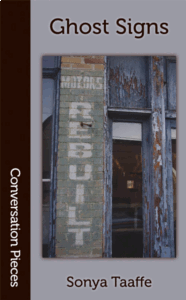
I recommend, enormously, with the whole of my salt-bottled heart, the reading of Taaffe's entire collection, which is very possibly her best yet; I only reserve judgment on that front because it's been too long since I read Postcards from the Province of Hyphens. But if you aren’t a lover of poetry but are a lover of prose that’s rich and strange, I fervently recommend purchasing the collection for this story alone.
—Amal El-Mohtar, Tor.com
Sonya Taaffe's collection Ghost Signs . . . [is] not to be missed. Taaffe is probably my favorite poet in the genre, and the book collects a great many of her recent poems, but also includes one wonderful long story, "The Boatman's Cure". The prose is particularly wonderful—full of striking metaphor, with a driving, nearly desperate rhythm, and the story is original and powerful, about a woman who can see and perhaps free ghosts.
—Rich Horton, Locus
By any standards, this is an incredibly successful poetry collection. It made me feel things. All the things. It made me sit gape-mouthed and half-drunk on language (there may have also been alcohol involved—I'm writing this during the season of midwinter revels, after all—but mostly language) and rhythm.
—Liz Bourke, Strange Horizons
Though the poems mourn the silence and unknowing of the dead, the dead leap to life to speak anyway, when given the chance, and they are always saying something, in the end, whether we hear them or not. We may know the dead well enough to love them. We can, in turn, be loved back. These poems, for all their plaintive, somber qualities, are also full of light: lovers reunite, companions are found, once-silent voices sing (even if their songs are not the ones we wanted). In Ghost Signs, the final poem of the collection, the journey to the underworld ends with an emergence back into the world of the living, where knowing the dead is a part of being alive, that confronting our mortality and the ways in which we are already dead may bring healing and closeness with others.
—Lev Mirov, Stone Telling
How "The Boatman's Cure" takes up this theme, you will have to discover by reading the story, but I can assure you it's moving, cathartic, and true.
—Francesca Forrest, Goodreads
A Mayse-Bikhl
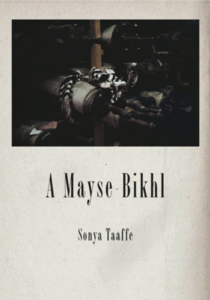
I love that this collection has taught me new things, though I do not dare to pretend that I have reached all these poems' dense layers; every reading has helped me to uncover a new one without detracting from the awe and pleasure of the first. A Mayse-Bikhl is lovely; it is tremendous; it is a work to be cherished as much as lauded, and I consider it a small treasure to have and hold: an heirloom given to me in passing by a stranger with whom I would be friends.
—Amal El-Mohtar, The Cascadia Subduction Zone
I once told Sonya Taaffe that, on the day she wrote a poem that didn't move me; a wolf would eat the sun. Take a look outside if you want a spoiler alert for A Mayse-Bikhl. If you do not see the sun shining, that's because it is night when you read this, and be most certain that the reflection staring in at you is you, and not a dybbuk, because in reading this collection, you stand a strong danger of being possessed.
—Erik Amundsen, Versification: Speculative Poetry Reviews
Taaffe's most recent effort is a chapbook, A Mayse-Bikhl (hand-bound from Papaveria Press, 2011), collecting some of her best poems of the past decade. The cover photograph is by her grandfather, Alfred Glixman, of the Czech Memorial Scrolls at Westminster Synagogue. A Mayse-Bikhl's poems all wind powerfully and tellingly from that central image, leading us through memory and the hope of the future.
—Daniel A. Rabuzzi, Lobster & Canary
A "mayse-bikhl" is a "little book of tales"—a title suggesting intimacy, adventure, treasure. It's all here. I have only read four of the twenty poems in the collection so far, but I have read each of them several times. I find it takes more than one reading to process them, which is why I'm reading so slowly. It's the solidity of Taaffe's images, the speed with which they follow one another, and their inextricability from the whole they create, that makes this "little book" so substantial.
—Sofia Samatar, Kankedort
The Dybbuk in Love
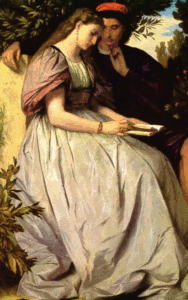
As always, Taaffe's writing is elegant and impressionistic. Whether describing her characters' emotions or the landscape changing from summer to autumn, Taaffe evokes the scene in the reader’s mind through startling image and subtle detail. Her preference for suggestion over concrete detail keeps her writing fresh and interesting. Drawn with the same impressionistic skill, Taaffe's characters, Clare and the dybbuk, come across as complex and ultimately very wounded and human—as most people are when they fall deeply in love.
—JoSelle Vanderhooft, Reflection's Edge
What her exquisite stories are about takes a back stage to the fact that they are exquisite, small written gems that roll off the tongue and into the memory. But, for those of you who are still plot-dependent, what we have here is a simple love story, albeit one between a twenty-first-century girl and a boy who died a hundred years previous, the kind of guy who won't let something as silly as incorporeality get in the way of being with the one he loves; he'll just wander in and borrow someone else's body for a while. Which sounds a lot creepier than Taaffe writes it; I'm serious, this is a love story, a romance even, not a horror story. But, like all good love stories, it's got a slightly different spin to make it something new. And new this is.
—Robert Beveridge, Amazon.com
Singing Innocence and Experience
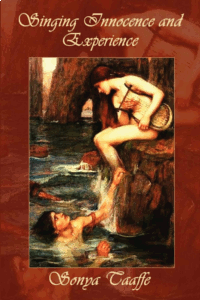
Taaffe's gift for evoking mood and revealing hard truths beautifully is nothing short of marvelous.
—Publishers Weekly
Sonya Taaffe is a writer of some of the most intense and image-drenched prose around. Line by long, exquisite, line her writing is desperate and involving. Indeed she made her first major impression on me as a poet—and I think she may be the best poet working in the SF genre right now. But she has also been publishing short stories all over the place, often on mythical or traditional fantastical themes but always individual and always centered on a central character's obsession.
—Rich Horton, Locus
In "Shade and Shadow," the female protagonist's habit of self-mutilation through "cutting" opens her up to a world of ghosts. "Featherweight" finds a woman with a sutured, empty chest desperately searching for a replacement heart. Another mystery woman, her skin dotted with freckled constellations, breaks the heart of her astronomer lover in "Constellations, Conjunctions." Taaffe's cosmos of love gone wrong, of lovers fated to miscommunicate, of incompatible worlds colliding, is a mosaic of such incidents, heightened beyond mere soap opera by their eerie supernatural aspects.
—Paul Di Filippo, Washington Post
Singing Innocence and Experience is a book that believes in the value of mutable stories. It’s filled with retellings and revisionings of myths and legends—mostly European, often Jewish, but with dashes of other cultures here and there—told in a fluid, lyrical style . . . Her stories, at first glance, can appear to be overfull of beauty, but in most cases it is more accurate to say they are full of romantic characters, who see the world in romantic terms and are often brought up hard against their preconceptions.
—Niall Harrison, New York Review of Science Fiction
The author's iridescent prose captures her keen understanding of mythological truths and their manifestation in the modern world. From a modern-day golem seeking its purpose for existence ("Clay Lies Still") to a young woman's perplexity at bringing home a unicorn ("Singing Innocence and Experience"), these tales present a unique and altogether startling approach to fantasy. Essential for every fantasy or short story collection.
—Library Journal
Each story in this collection provides a further example of Taaffe's deft hand. She can build worlds, as we see in the haunting story of Aruis, the city eternally sinking in "Time May Be", but her real strength is her ability to find and present meaning, to take fiction and make the fantastic found in myth relevant to life today.
—Torger Vedeler, Midwest Book Review
Postcards from the Province of Hyphens
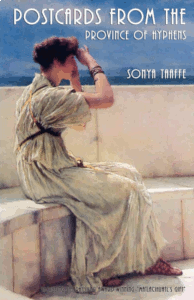
Reading Sonya Taaffe's first full-length poetry collection Postcards from the Province of Hyphens is a little bit like wandering into a whirlwind: one feels a little breathless upon emerging and all the better for the experience.
Calling the forty-eight poems and prose pieces comprising this hefty collection "eclectic" would not do justice to their breadth and scope. In a mere one hundred pages, Taaffe takes the reader on a journey through such diverse things as Jewish history and culture ("Years Like Yahrzeit Candles"), Scots ballads ("The Third Corbie"), the Mayan underworld ("New Blood") and Greek myth ("Proteus Tells"). Even though her subject matter is as diverse and sometimes obscure, one rarely feels lost inside Taaffe's world because her poetry stresses lived experience over literary conceit. Whether talking about the misery of a Selkie confined to land ("Skins on Sule Skerry") or the love life of a commedia dell' arte zanni longing to break out of his repetitive stage business ("Harlequin, Lonely"), Taaffe’s work concentrates on the great themes that undergird all great literature—war, death, the changing of seasons and, of course, love and sex . . .
For fans of truly unique lyrical poetry, Postcards from the Province of Hyphens is a must.
—JoSelle VanderHooft, Star*Line 28.6
In both prose and poetry, her grasp of language is intense enough that nothing slips by her.
'These are the trappings: the black cat,
eyes colored like old bones, no shadow
under its four paws and no breath
in its body; the black bird, hunched
ominous on houses' eaves, its call
scratching pale letters on the twilit air . . .'
opens 'Another Dark Lady,' and it shows how Taaffe doesn't waste a word. Another strength is that she's attuned to avoiding the easy. She’s a writer who isn’t tempted by low-hanging fruit.
—Geoffrey H. Goodwin, SpiderWords
Sonya Taaffe's Postcards from the Province of Hyphens (Prime Books) marks the full-length debut of a formidable new talent in speculative fiction and poetry. Taaffe's strength, first and foremost, lies in her razor-sharp language skills, which she uses to lead us on rich mythic journeys through dense, complicated landscapes. She knows how to use language to get under our skin and make us feel; her word choice is nothing short of impeccable.
—Elizabeth Genco, Endicott Studio for Mythic Arts